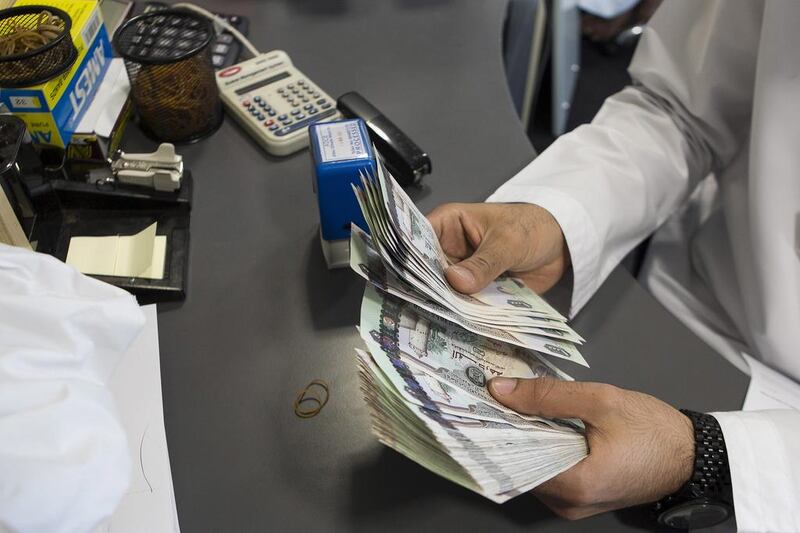Moody's Investors Service maintained its stable outlook on the UAE banking industry citing stable funding, strong capitalisation and expectations of an economic rebound next year amid higher oil prices.
"Stabilising oil prices and international bond issuances will continue to support funding and liquidity conditions in the country, following a tightening during 2016 amid oil price weakness," said Mik Kabeya, an analyst at Moody's.
Moody's is forecasting credit growth of 5 per cent in 2018. That compares to 2 per cent in 2017, 5.8 per cent in 2016 and 8 per cent in 2015.
_______________________
Read more:
[ Oman’s banking system outlook changed to negative, Moody's says ]
[ Profitability to remain resilient for top UAE lenders ]
_______________________
At the same time, non-performing loans are expected to rise, reaching between 5.5 per cent to 6 per cent of gross loans by 2018 from 5.3 per cent in June.
The rating agency said that high concentrations of loans to government-related institutions and to a volatile real-estate sector pose a risk to the overall quality of loans.
Capital levels are expected to remain strong for the UAE banking system over the next 12 to 18 months with system-wide tangible common equity at between 14 per cent and 16 per cent of risk-weighted assets, it said.
Such levels of capital, which reflect lower growth in risk weighted assets and the banks' ability to generate capital internally, will provide a substantial cushion against any deterioration in assets, Moody's said.
Profitability for banks is expected to remain strong with net income measuring about 1.5 per cent to 1.7 per cent of tangible banking assets, the rating agency said.
Moody's views chimes with what banking executives in the UAE have been saying lately. Abdul Aziz Al Ghurair, the chief executive of Mashreq and chairman of the UAE Banks Federation, said last month that credit growth in the UAE will likely be flat this year as banks remain cautious about lending, following a surge in non-performing loans that came about in the wake of a sharp descent in oil prices.
The slump in crude prices which started in 2014 impacted small and medium size businesses.
The level of non-performing loans in the banking system plunged to between 3 to 3.5 per cent this year from highs of more than 25 per cent in 2015, when many SMEs were wiped out by the slowdown in economic growth, leaving what was estimated at Dh5 billion of unpaid debts, said Mr Al Ghurair.





